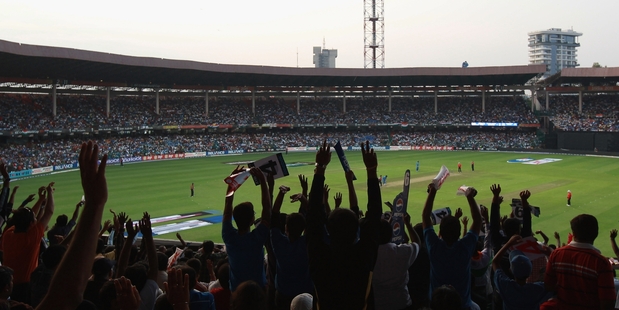explains why mainstream economists are referring to Karl Marx in discussions of the world economy--and why they won't talk about the whole Marx.
September 13, 2011

ECONOMIST NOURIEL Roubini, whose predictions of the financial crash of 2008 earned him the nickname "Dr. Doom," has referred his patients to a specialist in capitalist crisis: Dr. Karl Marx.
In an interview with the Wall Street Journal, Roubini said:
Karl Marx had it right. At some point, capitalism can destroy itself. You cannot keep on shifting income from labor to capital without having an excess capacity and a lack of aggregate demand. That's what has happened. We thought that markets worked. They're not working. The individual can be rational. The firm, to survive and thrive, can push labor costs more and more down, but labor costs are someone else's income and consumption. That's why it's a self-destructive process.
For several hours on August 12, the Journal website ran the video of the interview as a top story, under the headline, "Roubini: Marx was Right."
Considering that the first edition of Marx's three-volume masterwork Capital appeared in 1867, Roubini's revelation isn't exactly news to socialist opponents of capitalism. But given the intractable nature of the current crisis--a deep global recession, a weak recovery in the traditional core of the system in the U.S. and Europe, and now the possibility of a lurch into a second recession--mainstream, or bourgeois, economics has been exposed as ideologically driven and incapable of offering solutions.
Stimulus spending, championed by liberal followers of the economist John Maynard Keynes, was in full swing two years ago. It staved off total economic collapse after the financial crash, but failed to produce a sustained boom and led to big government budget deficits.
That opened the door to the free-market champions of the so-called Austrian economic school of Friedrich von Hayek, who argued that slashing spending was key to an economic revival--only to see such measures choke off growth in Europe and, more recently, the U.S.
But in August, stock markets gyrated worldwide amid a worsening European debt crisis, a near-stall in U.S. economic growth and a slowdown even in China, home of the world's most dynamic big economy. Suddenly, the ideological crisis that accompanied the 2008 crash was palpable once more as the world system appeared on the brink of a new recession.
- - - - - - - - - - - - - - - -
ROUBINI, A professor at New York University, made his name--and quite a bit of money--by telling the unvarnished truth to Big Capital before the Wall Street meltdown hit. He's done so once again, this time referring to Marx for an explanation.
In his interview with the Journal, Roubini argued that the U.S. economy is flagging because business is hoarding cash--more than $2 trillion by one estimate--rather than investing it in factories, new equipment and hiring workers. As he put it:
If you're not hiring workers, there's not enough labor income, enough consumer confidence, enough consumption, not enough final demand. In the last two or three years, we've actually had a worsening, because we've had a massive redistribution of income from labor to capital, from wages to profits.
That shift has taken place not during the crisis, but during the recovery, as economist David Rosenberg pointed out earlier this year when he noted that the "labor share of national income has fallen to its lower level in modern history," 57.5 percent in the first quarter of 2011, compared to 59.8 percent when the recovery began. While that might seem like a small change, given the $14.66 trillion size of the U.S. economy, it's huge.
In alluding to this trend, Roubini is apparently referring to Marx's observation about a central contradiction of capitalism. "The consuming power of the workers is limited partly by the laws of wages, partly by the fact that they are used only as long as they can be profitably employed by the capitalist class," Marx wrote in Capital Volume 3. "The ultimate reason for all real crises always remains the poverty and restricted consumption of the masses."
It's wrong to assume, Marx contended, that capitalists limit their investments during a crisis because "the absolute consuming power of society" has reached its limit. On the contrary, the unemployed want jobs and workers desire a higher standard of living as the slump wears on.
But during crises, capitalism can't deliver, even when business has plenty of capital to invest. That's because capitalists won't put their money into building factories and offices and hiring workers--as Roubini pointed out--unless they have a reasonable chance of making a profit. Otherwise, they sit on their money.
"The capital already invested is then, indeed, idle in large quantities," Marx explained. "Factories are closed, raw materials accumulate, finished products flood the market as commodities. Nothing is more erroneous, therefore, than to blame a scarcity of productive capital for such a condition."
The result, Marx wrote, was both a "superabundance of productive capital" and "paralyzed consumption"--a fairly accurate description of recent trends in the U.S. economy.
- - - - - - - - - - - - - - - -
THE BIGGER questions are these: Why do such capitalist crises come about at all? And why are some downturns in the economy mild recessions, while others generate protracted crises, like the Great Depression of the 1930s or the "depression-with-a-small-d" that's gripped the world economy since late 2007?
Marx wasn't the first to observe what today's mainstream economists call the "business cycle"--the economic slumps that take place every few years. His contribution was to delve into the reasons for that pattern. He concluded that the internal contradictions of capitalism doomed the system to periodic, highly destructive crises.
The root of these crises is in the unplanned and competitive nature of capitalist production. For the capitalist, what matters isn't meeting social needs, but obtaining the maximum profit. If obtaining profit is possible from producing a life-saving medical device like a heart pacemaker, that's fine. But if more money can be made by producing junk food or nuclear weapons, greater investment flows into those industries instead.
Meanwhile, competition puts capitalists under constant pressure. They have to make sure that workers produce goods in as little time as possible--at what Marx called the "socially necessary labor time" required to produce a particular commodity. Otherwise, more efficient capitalists will drive them out of business. Thus capitalists are constantly compelled to invest in labor-saving machinery to cut production costs.
That is the secret of capitalist profitability. For example, new technologies may allow workers to produce enough to cover the costs of their wages in, say, just three hours instead of the four needed previously. The result is an increase in labor time spent working just for the capitalist--increasing what Marx called "surplus value," which is the source of profits.
But a portion of surplus value must also be reinvested in the production process. Refusing to do so is not an option for capitalists--who live by the rule of eat or be eaten. To the capitalist, Marx wrote in Capital Volume 1, the motto is:
Accumulate, accumulate! That is Moses and the prophets!...save, save, i.e., reconvert the greatest possible portion of surplus-value, or surplus-product into capital! Accumulation for accumulation's sake, production for production's sake: by this formula classical economy [the original bourgeois economics] expressed the historical mission of the bourgeoisie, and did not for a single instant deceive itself over the birth-throes of wealth.
The drive to accumulate is blind and chaotic. As Roubini recognized, "markets aren't working" because what is rational for an individual person or corporation--the maximization of profit by pushing down labor costs--can be irrational for the system as a whole.
During the upswing of the business cycle, the problems are largely hidden. As long as profits are high and credit is available, companies can borrow to invest in new production and hire new workers. Pundits proclaim that recessions are a thing of the past.
But even as production expands, profits are squeezed as new entrants flood the market. Companies go bust, which hits their banks hard. The banks, in turn, raise interest rates or simply refuse to lend, which triggers further bankruptcies. Factory closings and mass layoffs ensure--and, in the modern era, job cuts hit the public sector as tax revenues decline.
In the section of Capital Volume 3 quoted above, Marx described how the crisis can seem to erupt out of nowhere. Thanks to the extension of credit, he wrote:
[E]very individual industrial manufacturer and merchant gets around the necessity of keeping a large reserve fund and being dependent upon his actual returns. On the other hand, the whole process becomes so complicated, partly by simply manipulating bills of exchange [i.e., checks and promises of future payment], partly by commodity transactions for the sole purpose of manufacturing bills of exchange, that the semblance of a very solvent business with a smooth flow of returns can easily persist even long after returns actually come in only at the expense partly of swindled money-lenders and partly of swindled producers. Thus business always appears almost excessively sound right on the eve of a crash.
Marx's description of how credit could delay, but then exacerbate, a crash applies to the financial debacle of 2008, which involved no small amount of the kind of manipulation and swindling Marx saw in his day. Set aside the toxic alphabet soup of today's financial assets--CDS, CDO and MBS--and Marx's analysis of the role of bankers sounds familiar: "the entire vast extension of the credit system, and all credit in general, is exploited by them as their private capital."
The development of credit, in turn, helps expand capitalist production beyond the capacity of the market to absorb new commodities: "[B]anking and credit...become the most potent means of driving capitalist production beyond its own limits, and one of the most effective vehicles of crises and swindle."
But Marx also stressed that the credit crunch is actually a symptom of problems in the underlying productive economy. He wrote in Capital Volume 2, "[W]hat appears as a crisis on the money-market is in reality an expression of abnormal conditions in the very process of production and reproduction."
- - - - - - - - - - - - - - - -
THERE ARE longstanding debates among Marxist economic theorists about just how capitalist crises play out in general and their manifestation in different historical periods.
Marx identified a long-term tendency in the rate of profit to fall--the result of the constant pressure to invest in technology to replace workers, who are the source of surplus value. But capitalists have been able to counteract the falling rate of profit in various ways--for example, by destroying unprofitable capital through highly disruptive means, ranging from bankruptcies to wars like the Second World War, which ultimately was the most important reason the system finally overcame the Great Depression and was launched into a postwar boom.
In the 1970s, severe slumps returned to the world system as a revived Europe and Japan, along with several newly industrialized countries, emerged as more effective competitors to the U.S. But the restructuring of uncompetitive industries, free-market policies and corporate globalization opened the way to a new boom in the 1990s, when the U.S. declared that its "miracle economy" was the model for the world.
Ultimately, however, the economic expansion of the 1990s set the stage for a new crisis--one that Marx would have recognized. In the Communist Manifesto, written in 1847, years before he undertook a systematic study of the system, Marx and co-author Frederick Engels noted that capitalism's drive to expand led to crises of overproduction--of too many goods to be sold at a profit:
In these crises, there breaks out an epidemic that, in all earlier epochs, would have seemed an absurdity--the epidemic of overproduction. Society suddenly finds itself put back into a state of momentary barbarism; it appears as if a famine, a universal war of devastation, had cut off the supply of every means of subsistence; industry and commerce seem to be destroyed; and why? Because there is too much civilization, too much means of subsistence, too much industry, too much commerce...And how does the bourgeoisie get over these crises? On the one hand by enforced destruction of a mass of productive forces; on the other, by the conquest of new markets, and by the more thorough exploitation of the old ones. That is to say, by paving the way for more extensive and more destructive crises, and by diminishing the means whereby crises are prevented.
That passage still has the ring of truth. It was capitalist overproduction on a world scale in the 1990s that set the stage for the 1997 East Asian financial crisis and the recession of 2001. But by dropping interest rates to rock bottom, the Federal Reserve was able to postpone the real day of reckoning for the U.S. for nearly a decade. Cheap credit and the housing bubble kept American consumers spending and the number of Asian factories growing, even if the number of manufacturing jobs in the U.S. continued to decline during the 2002-2007 expansion.
As we now know, banks were happy to make the loans for mortgages and then pass them along to Wall Street, which bundled them into securities that later turned toxic. When even a limited number of sub-prime loans started to go bad, a credit squeeze quickly destroyed investment banks Bear Stearns and Lehman Brothers. Nouriel Roubini, who had been warning about all this for years, was suddenly a business celebrity--and even Karl Marx made the financial press.
The bad debts of that era of casino capitalism continue to weigh down the world economy. Yesterday's toxic assets held by private banks have morphed into today's government budget deficits, thanks to the no-questions-asked, multitrillion-dollar bailouts in the U.S. and Europe.
And the global crisis of overproduction is still unresolved. In the U.S., the capacity utilization rate for total industry was 77.5 percent in July, some 2.2 percentage points above the rate a year earlier, but 2.9 percentage points below the average for the period between 1972 and 2010. That's unmistakable evidence of a depressed economy--and it's what Roubini was talking about when he cited "excess capacity" and mentioned Marx.
With mainstream economists fresh out of ideas about how to overcome the crisis, perhaps it shouldn't be surprising that Marx made news even in Rupert Murdoch's Wall Street Journal. But don't hold your breath waiting for a follow-up Journal headline: "Capitalism Isn't Working: Socialism is the Alternative." That part is up to us.
 ,
, 



